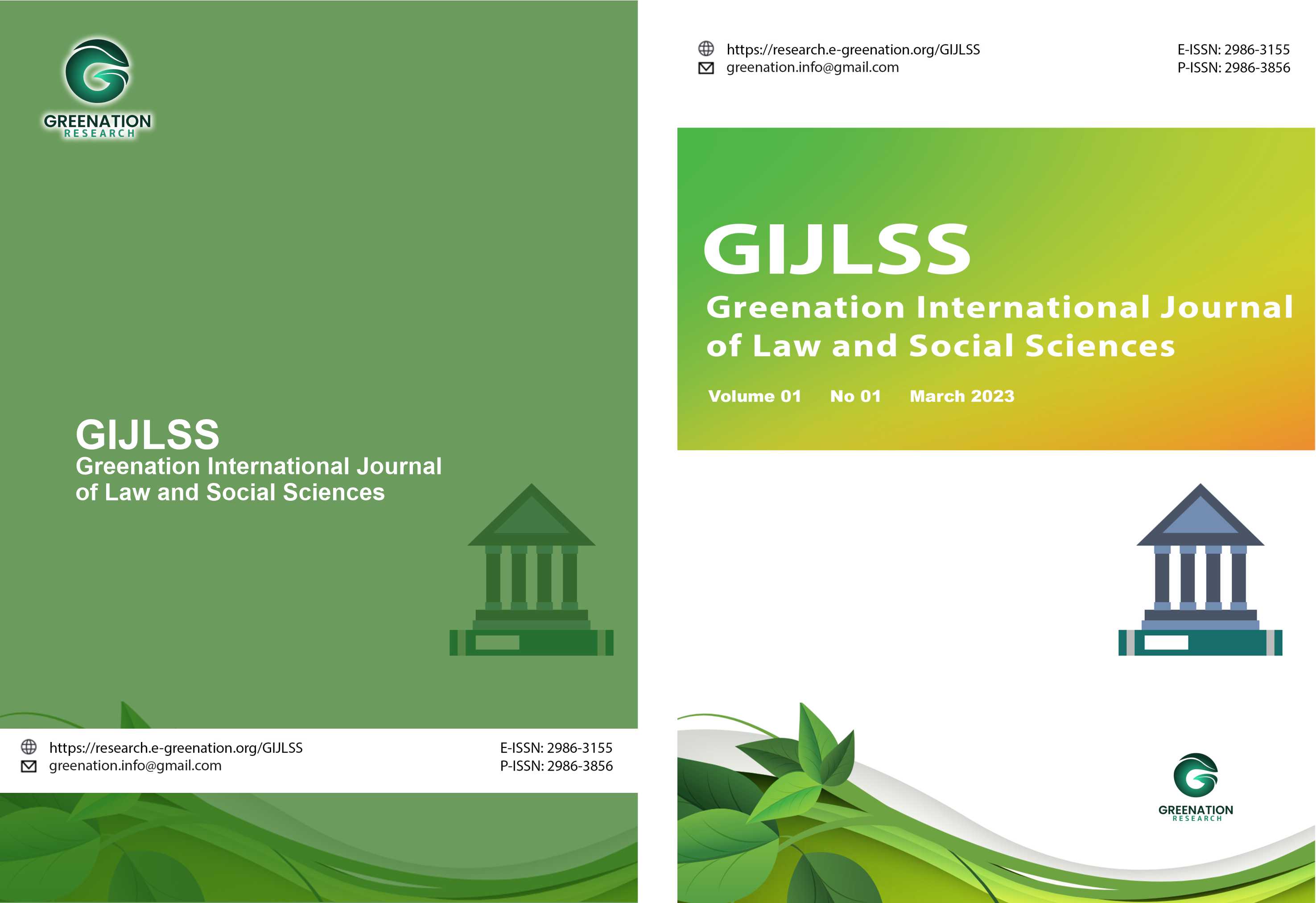Corporate Governance in the Digital Economy and ESG (Environmental, Social, and Governance) Principles
DOI:
https://doi.org/10.38035/gijlss.v3i3.582Keywords:
Corporate Governance, ESG, Digital Transformation, Sustainable Finance, OJKAbstract
The rapid growth of the digital economy demands fundamental transformation in corporate governance (GCG), which no longer focuses solely on financial performance, but also on the integration of sustainability principles. Demands from investors and global stakeholders are encouraging companies in Indonesia to adopt an Environmental, Social, and Governance (ESG) framework as an integral part of their business strategy. Digital transformation plays a significant moderating role, where technologies such as the Internet of Things (IoT) and artificial intelligence (AI) can accelerate ESG implementation and improve risk management accuracy. However, the Financial Services Authority (OJK) has identified major challenges in its implementation, particularly the limited availability of competent human resources and reliable data, which risks reducing ESG reporting to a mere formality. This study aims to analyse the integration model between GCG and ESG principles in the context of Indonesia's digital economy, identify the role of digital transformation in strengthening the impact of ESG on company performance, and examine regulatory challenges and the role of the OJK in promoting substantive ESG implementation. This study uses a normative juridical method. The analysis focuses on relevant regulatory frameworks, such as OJK Regulation (POJK) No. 51/2017 on Sustainable Finance, as well as a conceptual approach to examining the synergy between GCG theory and ESG principles in the digital era. It was found that the synergy between ESG and GCG significantly improves reputation, resilience, and investor confidence. Digital technology has been proven to increase operational efficiency and risk mitigation in ESG management by 30-60%. The role of the board of directors is crucial in driving ESG performance. However, implementation in Indonesia is still top-down and oriented towards compliance with OJK regulations, while the internal capacity of companies, including human resources and data infrastructure, is not yet fully adequate. The convergence of the digital economy and ESG is shaping a new paradigm of techno-ethical governance. However, its success depends on addressing capacity challenges. It is recommended that regulators such as the OJK shift from merely requiring reporting to facilitating HR capacity building and data standardisation. Companies need to invest strategically in digital technology and talent development to ensure authentic and impactful ESG implementation.
References
Akbar, F. M. A. (2024). METODE KUALITATIF DAN KUANTITATIF PADA STUDI ISLAM. Ar Rasyiid: Journal of Islamic Studies, 2(2), 95-112.
Akhter, F., Hossain, M. R., Elrehail, H., Rehman, S. U., & Almansour, B. (2023). Environmentalal disclosures and corporate attributes, from the lens of legitimacy theory: a longitudinal analysis on a developing country. European Journal of Management and Business Economics, 32(3), 342-369.
Amiruddin & Asikin , Z. (2012). Introduction Method Study Law . Raja Grafindo Persada . Jakarta.
Dwi Oka, NK, & Hermawan , AA ( Year No known ). Evaluation Implementation Finance Sustainable Based on POJK Number 51/POJK. 03/2017 ( Study Case at Bank Sumsel Babel). Owner: Research and Journal Accountancy .
Haryadi , YS, & Hartono, M. (2024). The Influence Disclosure ESG and Digital Transformation Against Performance Corporate Finance . Journal Scientific Economics and Business , 11(1).
Ibrahim, J. (2012). Theory & Methodology Study Law Normative . Bayumedia Publishing, Malang.
Kurniati , A., Purba , TY, & Fitriani , A. (2024). Integration Intelligence Artificial Intelligence (AI) in Reporting Sustainability : Steps Transformational in Accountancy Green . E- Journal University Alirsyad , 3(1).
Musfiyana , N., & Inayah, S. (2024). The Influence Mechanism External Good Corporate Governance (GCG) and Environmental, Social, and Governance (ESG) Sustainability
Downloads
Published
How to Cite
Issue
Section
License
Copyright (c) 2025 Soffa Marwa, Bambang Soesatyo

This work is licensed under a Creative Commons Attribution 4.0 International License.
Copyright :
Authors who publish their manuscripts in this journal agree to the following conditions:
- Copyright in each article belongs to the author.
- The author acknowledges that the Greenation International Journal of Law and Social Sciences (GIJLSS) has the right to be the first to publish under a Creative Commons Attribution 4.0 International license (Attribution 4.0 International CC BY 4.0).
- Authors can submit articles separately, arrange the non-exclusive distribution of manuscripts that have been published in this journal to other versions (for example, sent to the author's institutional repository, publication in a book, etc.), by acknowledging that the manuscript has been published for the first time at GIJLSS.























